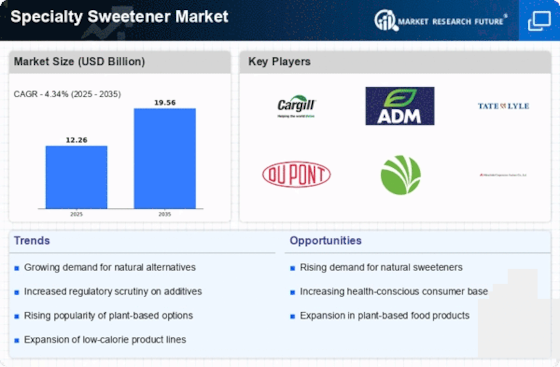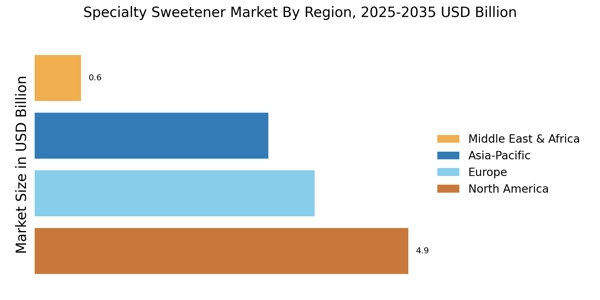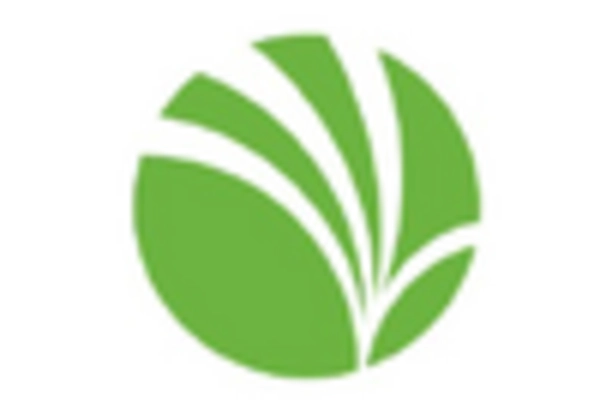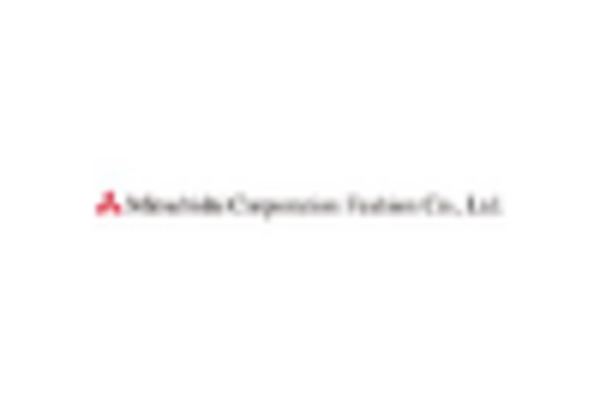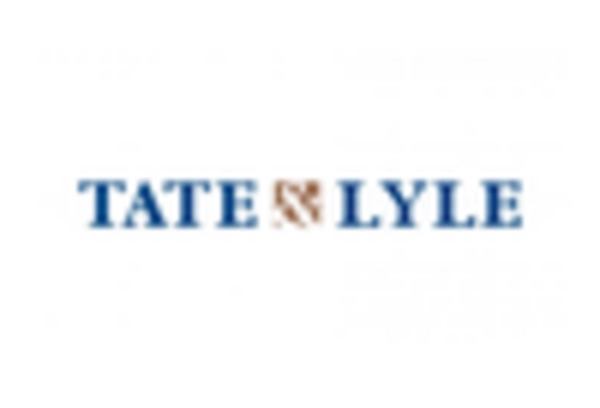Rising Demand for Natural Sweeteners
The Specialty Sweetener Market is experiencing a notable shift towards natural sweeteners, driven by increasing consumer awareness regarding health and wellness. As individuals become more health-conscious, they are gravitating towards products that contain natural ingredients rather than artificial additives. This trend is reflected in market data, which indicates that the demand for natural sweeteners is projected to grow at a compound annual growth rate of approximately 8% over the next five years. Consumers are seeking alternatives that not only satisfy their sweet cravings but also align with their dietary preferences, such as organic and non-GMO options. Consequently, manufacturers in the Specialty Sweetener Market are innovating to develop new products that cater to this demand, thereby enhancing their market presence and competitiveness.
Increased Applications in Food and Beverage
The Specialty Sweetener Market is witnessing an expansion in the applications of sweeteners across various food and beverage segments. This diversification is largely attributed to the growing trend of reformulating products to reduce sugar content while maintaining taste. For instance, the beverage sector is increasingly incorporating specialty sweeteners to create low-calorie and sugar-free options, appealing to a broader consumer base. Market analysis suggests that the beverage segment alone accounts for over 30% of the total specialty sweetener consumption. As manufacturers strive to meet consumer preferences for healthier options, the Specialty Sweetener Market is likely to see continued growth in this area, with innovations in flavor profiles and formulations.
Regulatory Support for Low-Calorie Products
The Specialty Sweetener Market is benefiting from regulatory support aimed at promoting low-calorie and sugar-reduced products. Governments and health organizations are increasingly advocating for policies that encourage the reduction of sugar intake among populations. This regulatory environment is fostering innovation within the specialty sweetener sector, as manufacturers are incentivized to develop and market low-calorie alternatives. For instance, recent guidelines have highlighted the importance of reducing added sugars in processed foods, which has led to a surge in the formulation of products utilizing specialty sweeteners. As regulations continue to evolve, the Specialty Sweetener Market is likely to see enhanced growth opportunities, as companies adapt to meet these new standards.
Growing Awareness of Sugar-Related Health Issues
The Specialty Sweetener Market is significantly influenced by the rising awareness of health issues associated with excessive sugar consumption. Conditions such as obesity, diabetes, and heart disease have prompted consumers to seek alternatives to traditional sugar. This shift is reflected in market trends, where specialty sweeteners are increasingly viewed as viable substitutes that can provide sweetness without the associated health risks. Research indicates that nearly 60% of consumers are actively looking for products with reduced sugar content, which is driving the demand for specialty sweeteners. As health concerns continue to dominate consumer choices, the Specialty Sweetener Market is poised for growth as it aligns with the evolving preferences of health-conscious individuals.
Technological Innovations in Sweetener Production
Technological advancements are playing a pivotal role in shaping the Specialty Sweetener Market. Innovations in extraction and processing techniques are enabling manufacturers to produce high-quality sweeteners more efficiently. For example, advancements in enzymatic processes and fermentation technology are enhancing the yield and purity of natural sweeteners. This not only reduces production costs but also improves the overall quality of the final product. As a result, the Specialty Sweetener Market is likely to benefit from increased production capabilities and a wider range of product offerings. Furthermore, these technological improvements may lead to the development of novel sweeteners that cater to specific dietary needs, thereby expanding market opportunities.


